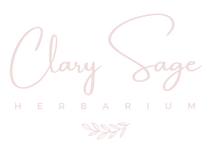Is Wild harvested really sustainable?!
Decolonizing herbalism.
Something
that has been on my mind for a while is colonialism in herbalism. How
do we as a purveyor of herbs do this in the most sustainable way that we
can feel truly good about?! Selling wildcrafted herbs in such large
quantities just doesn't feel right anymore. Herbalism has grown
exponentially and I don't believe many of our beloved plants can handle
the mass harvesting. We have always trusted in our bulk herb sources
when buying ethically wild harvested bulk herbs, but when one of the
barks (chinchona) that I often used to replace another of a similar action (quassia) also became on the endangered watch list, I thought, wow, are these plants truly being
sustainably harvested?! We have decided to discontinue the majority of
all wild-harvested herbs, resins and barks. Unfortunately, that means we
will no longer carry resins like Copal in bulk. If you are aware of sustainable collectives that cultivate and care for these trees we would love to hear your recommendation.
I hope you are
understanding to these changes. We still can hundreds of herbs, and
our staff would be happy to help you find you alternatives to wild crafted herbs we cannot find organically cultivated.
As far
as localing harvesting for the independent herbalist, I would ask you,
do you know this land well? Do you know if this stand has been there a
long time? Are there levels of growth old, mature, young, seedlings? Is
this plant endangered? Is this this plant invasive? Have you asked the
land & plant for permission to harvest? Do you have offerings to
leave? I personally think most non indigenous herbalists should be
growing or tending their own medicinals to create that relationship and
reciprocity. If you don't have a garden space where you live, ask a
friend if they would let you garden with them or find a community space.
Until you are a skilled and knowledgeable herbalist with strong
sustainability & steward practices I would forfeit the wild
harvesting and grow your own herbs that you can actually witness their
growing cycles, how tenacious they are to fluctuations in weather and
the like.
Invasive plants & trees that are not ask risk are: Plantain, Ivy, Japanese Knotwood, St.John's Wort, Hawthorn, Kudzu to name a few. There is a saying about weeds and it is something like this 'what grows prolifically around us is all the medicine we really need.'
Be well, live thoughtfully, walk softly and always give gratitude.
Yootva!
Laurie Books
CSH owner

